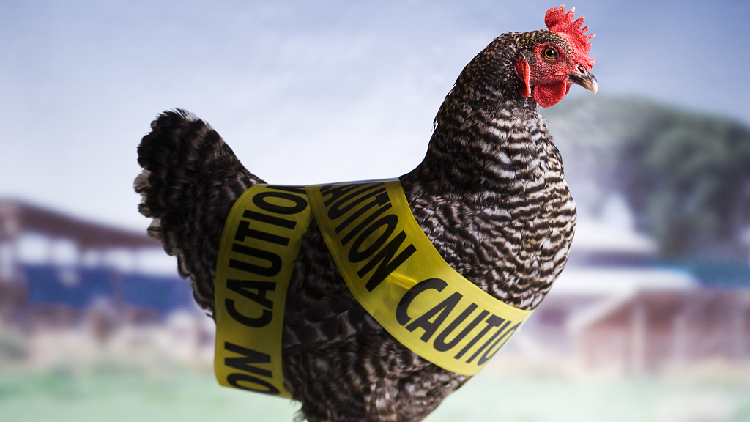The government has mandated that all poultry be kept indoors starting on Wednesday in Norfolk, Suffolk, and portions of Essex as part of a stepped-up effort to stop the spread of avian flu.
Following a string of outbreaks, the impacted areas were declared an Avian Influenza Prevention Zone last month.
The UK’s largest-ever outbreak has been confirmed in 161 cases of caged birds over the past year.
The (HPAI) H5N1 strain of avian influenza was discovered in captive birds at a property on Friday, according to the Department for Environment, Food, and Rural Affairs. A monitoring and control zone has been established around the premises.
26 instances were found in captive birds in 2020–2021, which was the previous record.
According to the Department for Environment, Food and Rural Affairs (Defra), all birdkeepers in the affected areas would be legally forced to confine their flocks indoors and adhere to strict biosecurity protocols in order to protect them from the disease.
This year, due to the spread of highly virulent avian influenza, about 48 million birds have been killed in the UK and the EU.
The 3.2 million birds killed in the UK were a “tiny fraction” of the entire production, or roughly 20 million birds per week, according to the government.
The wild bird population in the UK has also seen more than 1,700 instances, encompassing 59 species and 406 localities.
While this outbreak has continued all year and spread more readily than in past years, the virus typically dies out during the summer months.
Following a judgement by Christine Middlemiss, a chief veterinary officer of the UK, the necessary housing requirements for all poultry and captive birds will be implemented.
On Monday, the most recent bird flu statistics for Europe and the UK, which monitor outbreaks from October 2021 to September 9, were released. The virus has been found in 3,573 wild birds, and it has travelled from Svalbard to south Portugal and eastward to Ukraine, affecting 37 countries. But it did issue a warning that the number might be too low.
Although no cases of human transmission have been documented in the EU, there was one incidence in southwest England in January.











More Stories
AI to assist doctors in detecting broken bones in X-rays
Enhancing digital health initiatives could help prevent millions of deaths from noncommunicable diseases
Sweden Confirms Its First Case of Mpox